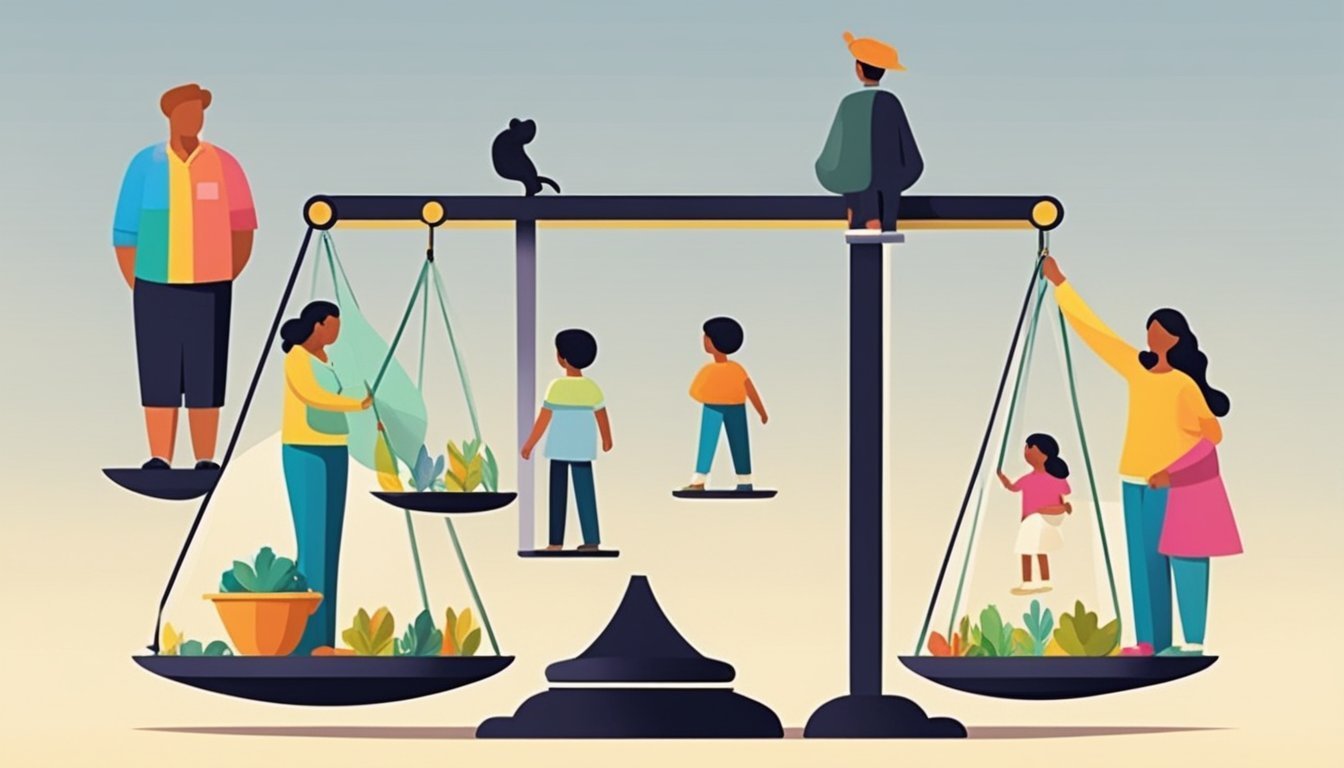The debate over parental rights has emerged as a key issue in today’s societal culture wars, sparking intense discussions in various spheres, from school board meetings to courtrooms and legislative sessions across the country.
With stakes that affect children’s education, medical decisions, and personal identities, parental rights have become a vital topic in contemporary conversations about societal values.
Historical Context of Parental Rights
This conversation is more than just a clash between parents and government; it reflects deeper societal anxieties regarding identity, individual freedom, and how much control society should exert.
As the conversation unfolds, it stretches into various aspects of life, including education policies, healthcare regulations, and the presence of family values in public life.
In this light, parental rights have transformed into a framework for examining broader cultural and political conflicts.
Several pertinent questions arise: What has propelled parental rights into the forefront of political and cultural debate? What do these discussions reveal about the shifting power dynamics among families, government institutions, and society? Furthermore, how has this discourse evolved into a symbol of larger struggles surrounding authority, liberty, and the direction of social norms?
To truly understand parental rights, we must look at their historical evolution, political importance, human impact, and current implications.
What might initially seem like a private issue is intricately interconnected with broader societal tensions between individual liberties, state control, and changing cultural values.
Contemporary Perspectives on Parental Rights
Insights from the humanities can greatly enrich our understanding of this subject and help steer the complex discussions surrounding parental rights.
Here’s how different fields of human thought can shed light on this topic:
- A Historical Perspective: The humanities provide valuable context regarding the evolution of parental rights, shaped by the changing dynamics between family authority and government involvement.
In earlier times, parental control went largely unchallenged.
However, the 19th and 20th centuries saw the state’s role in child welfare expand significantly, highlighting today’s tensions between family independence and governmental oversight.
- Philosophical Inquiry: Engaging with moral philosophy delves into the complexities of parental authority, child autonomy, and state responsibility.
Ethical debates can shed light on situations where parental rights might be reconsidered to prioritize children’s rights and the state’s role in safeguarding them.
These discussions invite a deeper exploration of issues like identity, healthcare, and the content of education.
- Cultural Analysis: Studies of culture provide insights into how parental rights interact with identity and societal values.
Examination of educational curricula that touch on race and gender reveals significant cultural anxieties.
The humanities help untangle these complexities, shedding light on how public perceptions of parenting and authority fuel political and cultural debates.
- Ethical Frameworks: The humanities encourage a grounded approach to navigating the balance between parental rights and the welfare of children.
Emphasizing empathy, respect for diversity, and constructive dialogue can open pathways to solutions that honor a variety of perspectives while promoting justice and equality.
Contemporary literature enriches our understanding of parental rights, children’s autonomy, and government involvement, offering profound explorations of these themes.
The Future of Parental Rights
In conclusion, the conversation surrounding parental rights extends beyond mere family governance; it encapsulates a significant societal struggle concerning the future of cultural norms, the rights of children, and the distribution of power between families and the state.
The stakes are indeed high, as one side champions parental influence and autonomy, while the other stresses the government’s role in protecting children.
In our increasingly pluralistic society, successfully navigating these competing demands will require thoughtful mediation.
Recognizing the importance of family autonomy is critical, but so are children’s rights and the state’s responsibility to ensure justice for all, particularly the most vulnerable groups.
How society resolves these discussions will not only determine the fate of parental rights, but also shape the evolving relationships among family authority, child independence, and the government’s protective role for its most vulnerable citizens.
Ultimately, this ongoing conversation will define how we balance personal freedoms with collective responsibilities as we move forward in today’s complex landscape.
Source: Insidehighered


